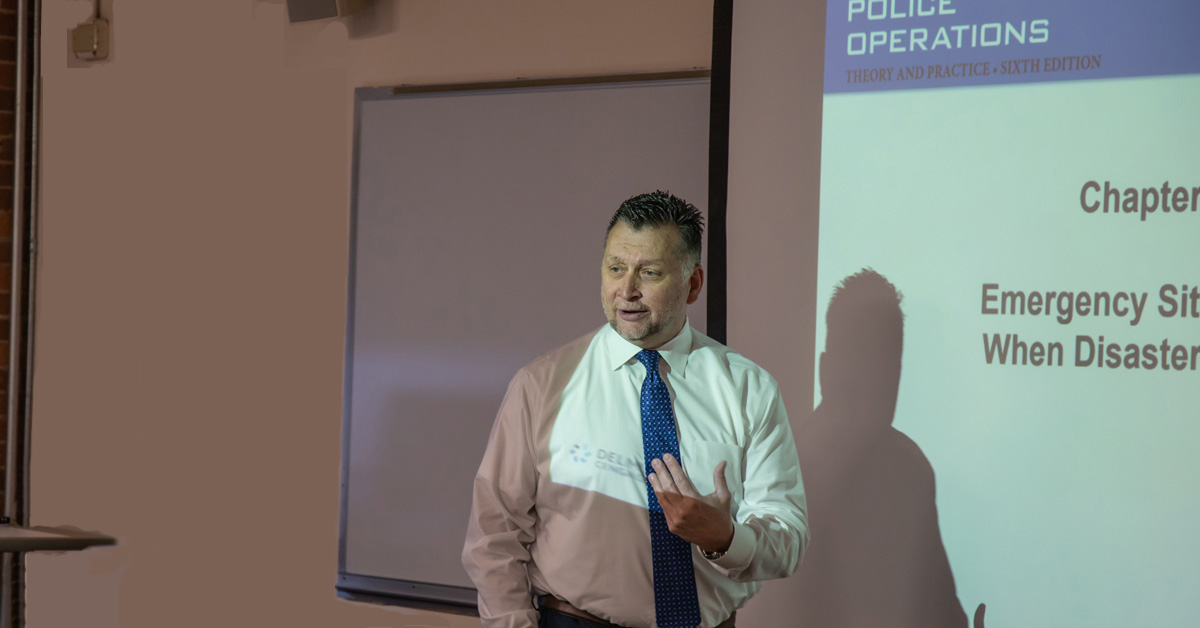A popular major on the Providence campus, Johnson & Wales University’s Criminal Justice degree programs are now being offered 100% online through JWU Online. The virtual associate and bachelor’s degree programs are designed to prepare students to enter into or advance in a wide range of disciplines, including law enforcement, legal careers and positions in community agencies and victim advocacy.
Paul Sylvestre, Professor and Department Chair, credits the quality of these programs to the faculty’s extensive experience in the industry and their passion for preparing students to have successful careers. “Not just our full-time faculty, but our robust pool of adjunct faculty have been teaching on the Providence campus, so that fosters a similarity in how the new online courses can replicate the on-ground delivery.”
We asked professors who are teaching in JWU Online’s Criminal Justice programs to highlight a few of their courses and tell us how they are delivering them online.
Discussion Boards
“One way that we simulate an interactive class discussion is by making use of the discussion post boards in all classes,” explains Sylvestre. “Students participate in conversations by posting their responses to the course assignments, commenting on the discussion posts of their classmates, and responding to commentary and inquiries of the course professor. These back-and-forth conversations resemble discussions that take place in a classroom.”
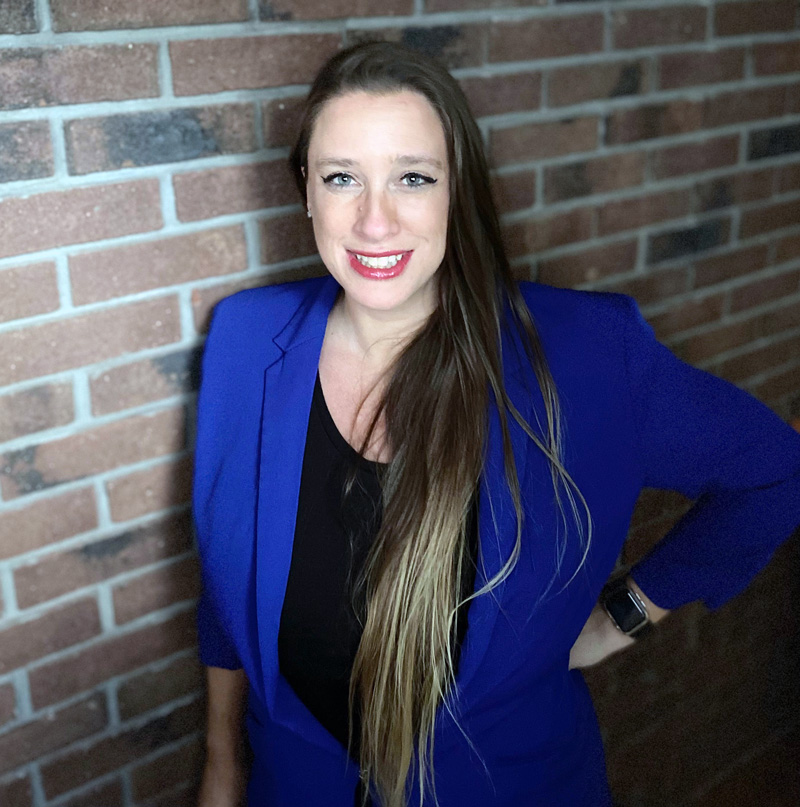
Danielle Lacorazza, Adjunct Professor, brings the industry to life by tying in her experience across the criminal justice system as a research analyst, as well as by incorporating perspectives of other practitioners, academics and justice-involved individuals.
“The stories shared with the class in discussion board posts allows for deeper conversation and reflection,” Lacorazza says. “I also enjoy the innovative nature of the online realm, as it requires versatility and outside of the box thinking to create an environment that is engaging and still personalized.”
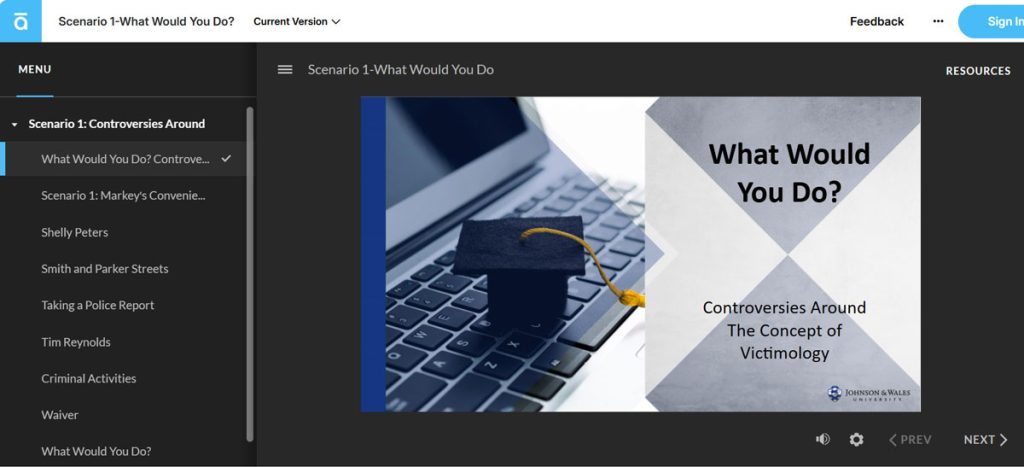
Engaging Students Through Interactive Media
Criminal justice careers require a high level of attention to detail, critical thinking and the ability to solve complex problems. Law enforcement professionals must often assess situations quickly and take action that adheres to policies and procedures, and effective communication with victims and other legal professionals is crucial for positions in public advocacy.
To help students develop these critical skills for any type of criminal justice career, faculty members partnered with JWU’s talented Instructional Design Team (IDT), to produce interactive media for the online classroom that provides an immersive learning experience.
“We just developed a Victimology course,” comments Sylvestre. “This course explores victimology from a historical and global perspective, examining its causes and effects. It covers the role of the criminal justice system and social services in supporting victims, emphasizes trauma and prevention, and addresses recurring victimization and the overlap between victim and offender.
“JWU Multimedia Developer Casey Quinn did an excellent job creating an interactive video for the course with visual imagery for the ‘what-would-you-do’ scenarios that walk students through real life situations commonly experienced by law enforcement professionals.
“A scenario we created — based on a staged abduction by New York City police officer Bill Stanton — demonstrated the bystander effect. Imagine you’re a young mother in the shopping mall with your two young children, and you observe a young girl — maybe 10 years old — being dragged by a male. She’s saying, ‘You’re not my dad,’ but no one’s paying attention.

“The scenario invites self-reflection. You understand that children can misbehave and you don’t want to butt in or wrongly accuse someone of something. But no one else is doing anything. What would you do? This type of scenario replicates a discussion we might have face-to-face in a classroom, where there’s no right or wrong answer.”
Encouraging Creative Thinking In Written Reports
Sylvestre taught Law Enforcement (CJS1090) online for the first time this summer — a course he developed. His goal was to have students understand the scope and depth of information that goes into a police report.
“I offered students the opportunity to select a scenario and be creative in how they wrote their reports. I was focused more on the narrative they would create than on the part of the report which involved filling in the boxes. They chose a scenario involving a traffic stop made after officers observed a motor vehicle violation.
“I was interested to see whether the students wrote in the third person and if they established probable cause. How would the students explain the car stop? How well did they articulate what they perceived as suspicious behavior? Did they follow procedures in the actions they took — and how did they handle the car’s registration problem?
“Most did a good job; still, some students fell into the same trap that individuals who have been on the job for 15 years fall into. But that assignment — and others, like drafting a search warrant — shows them the detail that officers have to use in police reports and how descriptive they need to be.”
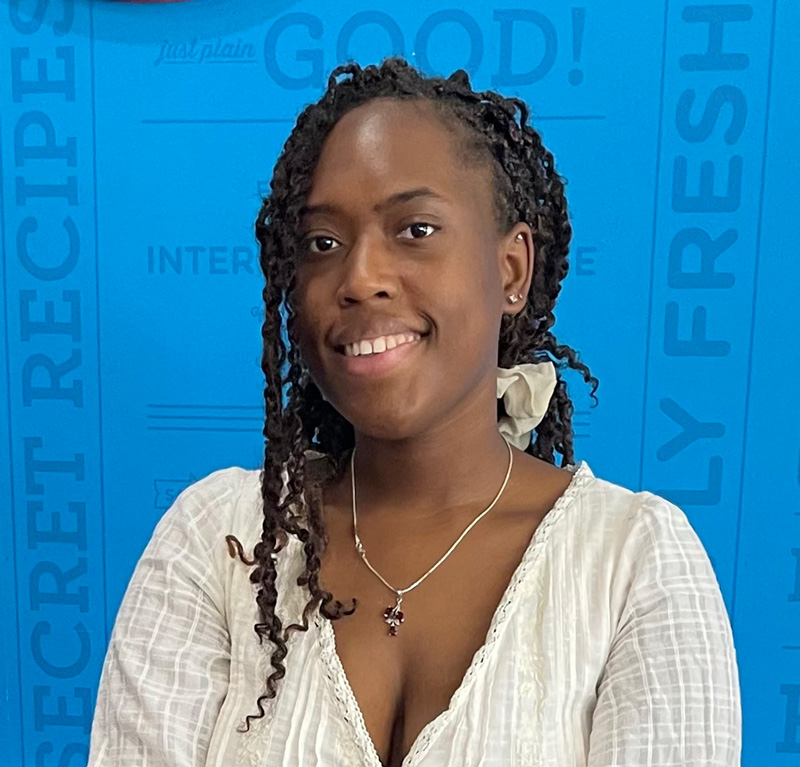
Nathalia Lee ’25, B.S. – Psychology, was a student in that Law Enforcement class. “Working at a juvenile detention center and at a psychiatric center, I became interested in the intersection of mental health and criminal justice, so while pursuing my bachelor’s degree in Psychology at JWU, I took the Law Enforcement and several other criminal justice courses.
“I especially liked the hands-on activities, particularly the report-writing assignments. They gave me a realistic sense of how reports are structured and used in the field and helped me build skills that I know will be useful in my career. I also appreciated how the courses connected theory with real-world practice through discussions and scenario-based work.”
Engaging Students Through Video Content
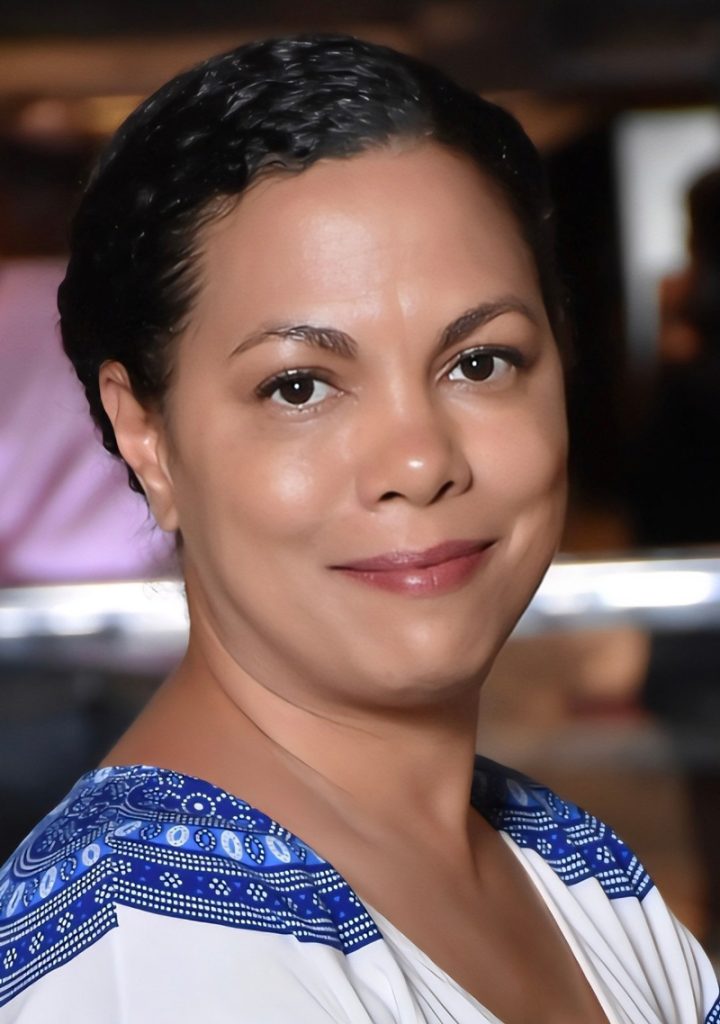
Jeannine Pettiford, Adjunct Professor, says, “In my online courses, I engage students through video content, and sharing my insights, personal reflections, and real-world experiences related to each part of the course. This approach helps students connect not only with the material, but also with me as their instructor, giving the online class a personal touch.
“I strive to create an online learning experience that mirrors the engagement and interaction of an in-person course. By sharing my experiences and practical insights through video, I aim to bridge the gap between theory and practice, providing students with a comprehensive understanding of the field. A sense of connection is fostered not only through personal videos but by interactive discussions and personalized feedback, helping to build a supportive learning community.”

Student-Produced Videos
Steve Riccitelli, Lecturer, notes, “I adapt existing curriculum for online delivery, by making small adjustments that will boost student engagement. For example, I encourage students to upload their own short video introductions. I also provide video feedback on assignments and frequently connect course concepts to my professional experiences as a former captain with the North Smithfield police department, which helps students see real-world applications.
“Recently I rewrote the Juvenile Justice class for the online platform and revised the student project requirement to include a video presentation. Students are now expected to submit both a written paper and a companion video in which they explain their findings and share their perspectives on the project topic.
“This video requirement aligns with REAL (Reimagining Experiential & Applied Learning), a university-wide initiative emphasizing applied, real-world learning approaches to bring active learning and experiential components into every course. Making their own videos gives students an opportunity to share their suggestions for future legislation and strategies to address juvenile crime.
“Seeing and hearing their peers helps students foster a stronger sense of connection compared with having them engage only through written discussion posts and projects. This visual interaction provides a meaningful way for online students to feel connected to JWU and the wider student community.”
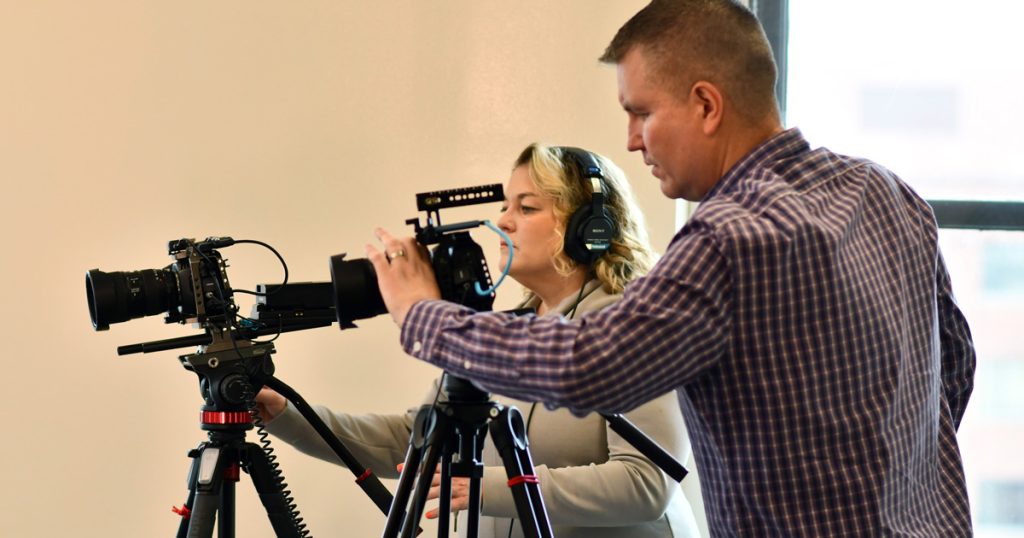
Faculty-Produced Videos
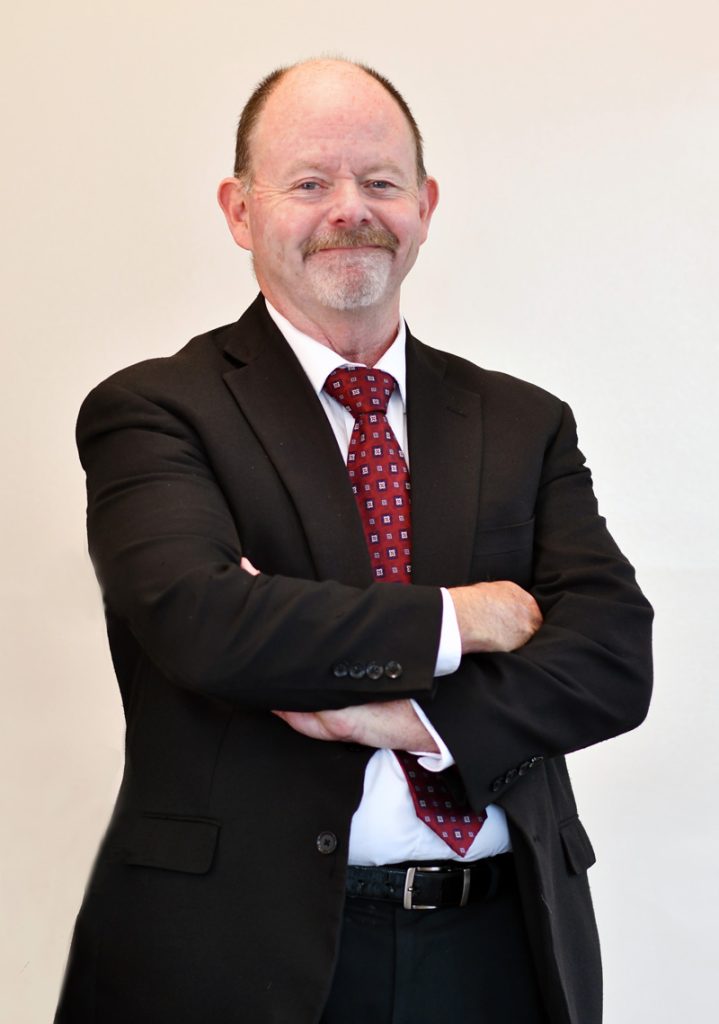
James Desmarais, a criminalistics specialist and retired Providence Police captain with over 27 years of law enforcement experience, is developing the online version of the Criminalistics course he teaches in the classroom. Together with IDT, Desmarais is producing videos in the lab that demonstrate how to process a crime scene and other related topics.
Staging a murder investigation in the Crime Scene Room on campus, Desmarais walks through the steps of how to photograph a crime scene. He explains, “How you take the shots is important, because they should tell a story to a jury and make them feel as if they were in that room themselves. All the shots need to be at eye level because that is more comfortable for the jury to see — they need to know where everything is.”
Desmarais demonstrated taking close-ups of the evidence — the body, blood spatter, weapons — and then particulars like entry wound from a firearm, bindings on the hands and feet or duct tape over the mouth. “All of these must be photographed without touching or altering the evidence,” Desmarais notes.
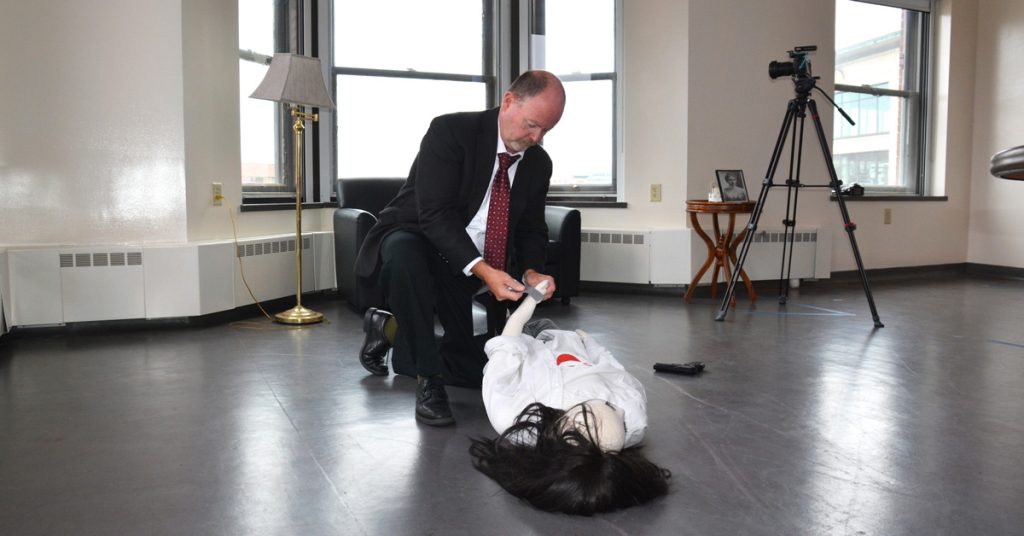
Showing how he places a photography scale next to a piece of evidence, Desmarais remarks, “When I do a close-up, I’m at 90 degrees, so we can upload the photograph to Photoshop and calculate the size if we need to.
“You have to be very systematic to keep track of evidence. After taking all of these photos, I assign and place numbers alongside each piece of evidence and take another set of photos. The last photographs are taken underneath the body as it is removed as there may be additional evidence discovered.”
Online students benefit from learning via video format by having the ability to watch the video as many times as they need to, until confident that they can replicate each step of the investigation.
Faculty As Mentors
Lacorazza emphasizes, “I genuinely want to aid in the success of my students. I convey to my students that while I am not physically present on campus, I am absolutely a resource for them to discuss careers and internships, pathways of learning whether it be graduate certificates, masters, or doctorates, content related to the course and relevant current events, and really, anything they need to discuss pertinent to their academic and professional careers.
“I see the virtual platform not as a barrier, but one that allows me to reach students who may not seek out guidance in a traditional setting. When students recognize this, it encourages their engagement in the coursework.”
Criminal Justice Professionals Make A Difference
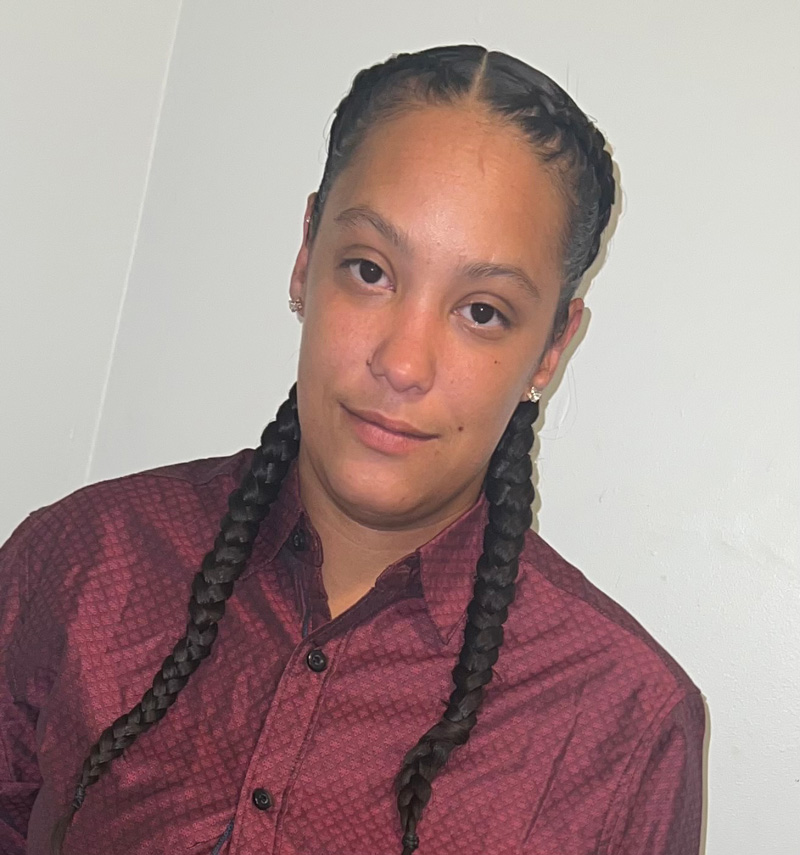
Studying criminal justice gives Taisha Filion ’27, the opportunity to start a new career. “I’ve always been interested in how investigations work and what goes on behind the scenes in solving crimes. I want a job in which I feel like I’m making a difference, and being a detective is exactly that for me.
“The Criminal Justice associate degree classes are organized, the material is relevant, and everything is focused on what you’ll need in a criminal justice career. It’s not just theory; it’s practical knowledge that I can see myself using every day as a future investigator.”
Lee, who complemented her psychology courses with criminal justice classes, is eager to make a difference with her Johnson & Wales education. “I’m excited about applying my education in roles where I can support individuals with mental health challenges, whether in case management, rehabilitation, or advocacy. I’ve had a positive experience with JWU Online and would highly recommend it to anyone interested in pursuing a career in criminal justice, psychology, or related fields.”
Make A Difference In A Criminal Justice Career
Ready to start or advance in a criminal justice career? For more information about the Criminal Justice associate in science and bachelor of science programs at Johnson & Wales Online, complete the Request Info form, call 855-JWU-1881, or email [email protected].
